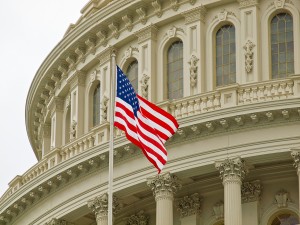Government Records Definition
Many people are unaware of the existence of government records; however, the amount of information that our government keeps on file (and how much of that is available to the general public at large!) may be surprising. In earlier times, people would seek out this type of information for relatively innocent purposes such as tracing family lineage and historical backgrounds, but in modern times a simple search can reveal a great deal about a person by way of government records!
Government Records Examples
One obvious one is your very own driver’s license! This item alone is a government issued document which contains your name, date of birth, address, and personal identifying information such as your hair color, eye color and height along with a photo. In conjunction with this item, the DMV also keeps a record of your vehicle, its model and make and its year, which can also assist in identifying a particular individual!
Another common government record is proof of ownership, and these can be traced down through many centuries! In earlier eras, proof of land ownership was key because it was tied directly into one’s net worth. In our own times, such still holds true, but land limits (where property lines begin and end, for example) are more clearly defined. County clerks hold these items on record and they may often be located through an online search. Furthermore, property tax records on a given address are also readily available and can even show whether they have been paid or not.
Birth, death and marriage records are easily located in government records too. Annual census takers collect this data and post it as part of their research, and someone who knows your name or identifying information about you such as your date of birth or state where you reside can find this information with a minimum of searching. Some states even post social security numbers online when posting death notices. Arrest records may be available as a matter of public record as well, and some charges, such as sexual offenses, are reported as a matter of general community safety to allow for protective measures.
Court dockets and transcripts are public record, mostly to allow for public review of government procedures; however, some information (such as within certain types of criminal cases) may be redacted. Generally, though, court case information is released once a case has concluded and can be researched through courthouses as well as the internet.
Meeting minutes from public forums are always available! Town and county meetings are normally videotaped along with being broadcast live (typically on local public broadcasting channels) and as such those who attend or speak at such meetings can reasonably expect to be seen, heard or both at these events. Transcripts from these events reflect the goings-on and are freely available also.
The above listing shows the most common government records and how accessible they are as a rule. It may seem shocking that so much information is allowed to be viewed by anyone who seeks out such, so with that in mind, knowing the parameters of what information can be published and acting accordingly can help you to preserve any needed privacy!
Additional Government Records Information
Government Public Records Search
National Government Records Archives
Government Vital and Civil Records

Please be advised that the information accessed through SearchQuarry.com searches may not always be accurate or current, as we neither generate nor authenticate the data provided via our service. The reliability and precision of information are primarily contingent upon diverse public sources from which data is compiled. By utilizing SearchQuarry.com, you acknowledge your acceptance of the terms delineated in the SearchQuarry.com terms of service and our privacy policies. Information acquired via SearchQuarry.com must not be utilized for unlawful purposes such as stalking or harassing individuals, or scrutinizing public figures or celebrities. Individuals who contravene these directives may be subject to both civil and criminal legal proceedings and sanctions. It is explicitly stated that SearchQuarry.com does not function as a "consumer reporting agency" as defined by the Fair Credit Reporting Act ("FCRA"), and therefore, does not furnish "consumer reports" pursuant to the FCRA. SearchQuarry.com strictly prohibits the utilization of information garnered from search results (a) for discriminatory practices against any consumer; (b) for assessing a consumer's eligibility for personal credit, insurance, employment, housing, or government licenses or benefits; or (c) in any other manner that may impact a consumer's economic or financial status or standing.

